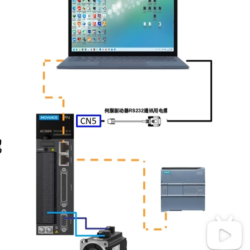From 2020 Umicore started the patent wars against Ronbay
Technology involving the cathode material of ternary lithium battery. It is the hardest hit area for Chinese enterprises to suffer from overseas patentees’
lawsuits.
BASF & Umicore
materials are Germany BASF and Umicore Belgium. The two giants had a patent
battle shocking the lithium industry in 2015, which ended with BASF winning and
Umicore becoming the target of BASF’s patent re-licensing.
BASF focused on the development of ternary lithium batteries in China. Naturally Chinese companies became BASF’s main patent fee targets.
Material Co., Ltd. (”Ronbay“) is mainly engaged in the research and development, production and sales of lithium battery cathode materials and their precursors. The company’s core products are NCM811 series, NCA series, Ni90 and above ultra-high nickel series ternary cathode and precursor materials. Ronbay became the first high nickel material manufacturing company in China to achieve mass production of NCM811 ever since 2017.
Ronbay announced in the evening of September 23, 2020 that the company received
a Civil Complaint from Ningbo Intermediate People’s Court regarding the lawsuit
filed by Umicore:
Umicore claimed that it is the right holder of the invention
patent No. ZL201280008003.9 “High nickel cathode material with low soluble
alkali content” and considers that the technical features of Ronbay’s
S6503 product are the same as those of some claims of the Umicore’s invention
patent, and claimed for over US 62 million damage awards.
that the lawsuit involving the company’s S6503 type in 622 series ternary
cathode material products, the sales only account for 0.0112% and 0.001% of the
company’s operating revenue in January-June 2019 and 2020 respectively. The
impact is considered to be very limited.
From the perspective of the
development history of ternary lithium materials technology, Umicore is not a
patent offensive opponent. Therefore, the case of suing Ronbay and
claiming a huge amount of compensation is quite mysterious.
The Chinese rivals of Umicore, in addition to Ronbay,
from the long list of BASF’s patent licensees, include Hunan Changyuan Lico,
Xiamen Xia tungsten new energy, Pulead, Brunp Recycling, Beijing Easpring,
Zhenhua E-chem, etc., as well as many cathode material companies which are not in the list, are direct or
indirect rivals of Umicore.
cathode material companies through patents like BASF, it will pay a high price.
Umicore Purpose?
So, what’s the purpose of Umicore initiating the
lawsuit? Is Umicore trying to scare the rivals, as the Chinese idiom “kill the
chicken to show the monkey” this time, aiming to become a royalty
harvesting machine in the industry like BASF? Or is it just for Ronbay
technology, aiming at solving the conflict between both?
Per our analysis, it suggests that the
last speculation is more likely, for three reasons.
patent of ternary lithium battery to prosecute Ronbay.
- 3M has three basic patents on nickel-cobalt-manganese
cathode materials, which are inescapable patents in the ternary lithium
industry. After 3M withdrew from the lithium industry, the patent rights were
also transferred to Umicore to take care.
- But this time the patent used by
Umicore to sue Ronbay is a patent invented by two inventors from
Umicore Korea, one working in LG Chemical for many years before. It is not
known whether the “Korean element” of the patent in the lawsuit is
related to several Korean companies under Ronbay?!
downstream partner with Ronbay.
- The company prospectus shows that EMT Korea was
acquired by Ronbay, and Ronbay also developed Umicore Korea as a customer in
2018 and sold it precursors. All EMT’s revenue (168 million yuan) in 2018 came
from Umicore Korea. It is also unknown whether this lawsuit is related to this
collaboration.
Thirdly, Umicore did not attack Ronbay’s
knock-out product 811.
- Umicore sued Ronbay Technology for one of its
622 series products, not its star product 811 series, which accounts for half
of its revenue. Ronbay is also trying to avoid the importance of the 622 series
in the overall revenue in the lawsuit announcement to eliminate the impact of
the lawsuit.
- But on the other hand, if this product, which is not yet in mass
production, is claimed by the other party for more than 62 million yuan, then
assuming that the other party is suing the 811 series, the claim amount may be
as high as hundreds of millions.
litigation strategy it seems leaving a backhand and showing more interested in
reaching some kind of agreement with Ronbay at the negotiation table through litigation.
Invalidation Decision
On August 4, 2021, the Patent Review and
Invalidation Department of China National Intellectual Property Administration
issued Decision No. 51308 in connection with the invalidation of Umicore patent
ZL201280008003.9 filed by Ronbay. The result is “declared partially
invalid”. After reading the whole decision, we found out that the only
claim of Umicore invalidated by Ronbay is dependent claim 13, because the claim
uses an uncertain word like “NaOH” and the scope of protection is unclear.
All remaining claims remained valid.
For Ronbay, it is a dissatisfied and disappointed
result, and a failure to challenge Umicore’s patent. Ronbay is still facing the
patent infringement compensation of over US 62 million from Umicore.
First Instance Judgement
On October 9, 2021, Ronbay released a progress
announcement of the lawsuit with Umicore regarding the “lithium nickel
cobalt manganese acid S6503” infringement of patent ZL201280008003.9:
On September 30, 2021, the Company received the favorable civil judgment No. 313 issued by the People’s Court of Ningbo (2020) Zhejiang
02 Zhi Min Chu 313.Zhejiang Intellectual
Property Research and Service Center notarized and appraised “lithium
nickel cobalt manganate S6503” product technical characteristics for identification
and issued an “appraisal opinion” (No. ZXJ202107002). The appraisal
concluded that “lithium nickel cobalt manganate S6503” product did
not have the technical characteristics contained in the plaintiff’s
patent-in-suit claims.
It was based on this appraisal that the Ningbo
Intermediate Court ruled that the “lithium nickel cobalt manganate
S6503” product did not fall within the scope of protection of the
patent-in-suit.





.webp)





